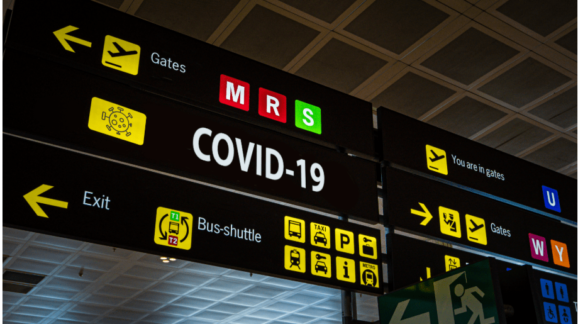Post-Corona Politics: Opportunities and Threats

There is a lot of attention being paid to the latest emergency legislation being proposed to address the coronavirus pandemic, from $1,000 checks for every American to paid leave for U.S. workers to a bailout for the airline industry. While those proposals are debated and implemented, however, we have the opportunity to think about what lessons the current crisis can teach us about longer term changes. Political observers often facetiously use the phrase “never let a crisis go to waste” to refer to a cynical attempt to hijack an emergency with unrelated priorities, but if the dislocations caused by our current situation reveal opportunities for real reform, we should run with them.
One big opportunity we have already seen is federal and state regulations that were hindering response to the pandemic that have already been temporarily waived or repealed. My colleague Ryan Young just blogged a long list of these, with links to lists being created by other groups. The Transportation Security Administration is now allowing passengers to carry 12 ounces of hand sanitizers, up from 3.4 ounces, the Department of Health and Human Services will allow doctors to practice medicine across state lines, and the Food and Drug Administration is now allowing private companies to sell coronavirus tests without its approval.
We hope to see many more of these, and Ryan list several proposals in addition to the ones that have already gone forward. See also the R Street Institute’s new article “Small Regulatory Reforms That Can Help People During the Pandemic,” including important changes to occupational licensing for many different kinds of jobs and reforming “scope of practice” restrictions for medical professionals in particular. Many of these rules are easy calls for repealing because they were always protectionist and anti-competitive and therefore bad policy to begin with. Not only do they not serve the interests of patients and consumers today, there was never a good public interest argument for enacting most of them to begin with. Hence why many people have begun sharing examples and suggestions on Twitter with the #NeverNeeded tag.
Beyond repealing the specific rules that are actively inhibiting public health and resiliency responses, we have the bigger question of how large a role government agencies, and the federal government in particular, should play in the life of the nation after the pandemic is resolved. Some advocates of a bigger, more expensive government have suggested that a public health crisis like the one we’re in proves that we need more programs, agencies, and spending. But blindly spending trillions of more taxpayer dollars won’t make us safer.
A post-corona federal government should focus on the things that are core functions of government: protecting our rights and defending our safety. Coordinating a policy response during a public health crisis certainly qualifies, but not everything else does. If anything, a smaller government that focused on the most important public priorities and left the rest to voluntary institutions would serve Americans far better. My colleague Michelle Minton made this point well earlier this week when she took the Centers for Disease Control to task for, seemingly, paying more attention to whether Americans were using flavored vapes than to actual infectious disease threats. And it’s not just a matter of money—having to administer a clutter of low-level projects distracts whomever is managing an agency like the CDC from the more important tasks on which they should be focusing.
We should also only be making policy changes that are actually sound long-term policy. My colleague Ryan Young again: “Congress should refrain from passing what my colleague Wayne Crews calls ‘flash policy,’ such as a crisis-inspired stimulus package, or bailouts, or rash monetary fixes.” It may be too late to hope that we won’t see any wasteful bailouts or rash monetary fixes, but those should, at least, be temporary one-time interventions. Worse would be making permanent changes that are arguably applicable to times of medical and societal crisis but are counterproductive to the normal functioning of the economy going forward. Sen. Elizabeth Warren (D-MA), for example, has reportedly embraced the Machiavellian meaning of the “never waste a crisis” sentiment by insisting on a $15 an hour federal minimum wage and dramatic changes to corporate management and governance that would never have been politically viable in Congress before the Covid-19 infection started.
If we’re concerned, as we should be, with restoring the U.S. economy to its pre-infection vigor, we should absolutely avoid saddling U.S. companies with restrictions on how they can operate, share risk, and apportion profits in the future. We should not impose permanent new burdens on employers and entrepreneurs to address a once-in-a-century medical emergency, and we should definitely not limit the scope of what’s possible to make and build in this country because of a short-term—though very serious—medical emergency.
Even if everyone agreed that the current administration was doing an excellent and effective job fighting Covid-19 (and that doesn’t seem to quite be the case), it wouldn’t be a reason to give government agencies more power over the non-pandemic economy in the future. If your neighbors saw your house was on fire, and pitched in to help you, would you want them to still be sitting in your living room five years later, telling you how to invest for retirement and what college your children should go to? Government has its rightful duties, and helping Americans survive a plague is one of them. That doesn’t mean we should hand them the keys to everything else.